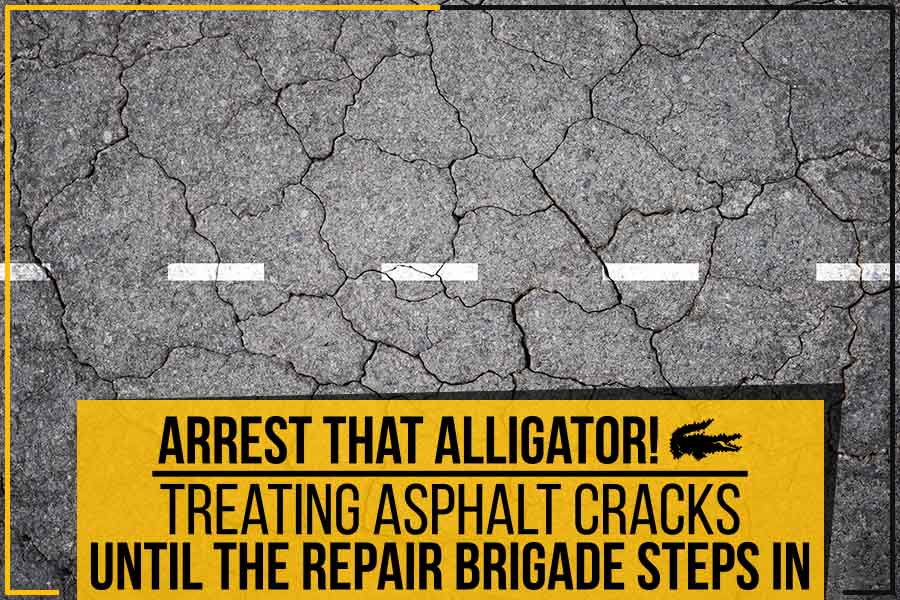
Alligatored cracking, also known as crocodile cracking, or spider cracks, is an advanced stage of fatigue cracking that affects pavement subjected to heavy traffic loads for an extended period of time, especially if the asphalt in question faces compromise in the quality of the sub-base.
How It Occurs?
Asphalt grades for driveways, residential streets, highways, and parking lots are very different because they are meant for different vehicle loading. And even the best mix of asphalt, if left to the mercy of the traffic right after pouring, can start to destabilize because of improper and uneven compaction of foundations.
With the seal coating damaged by the cracks and water intrusion, potholes and raveling start canvassing the affected patch of road, forming a pattern of cracks akin to the freshwater reptilian’s hide. From there on, it’s an expense-ridden cascade failure of asphalt pavement.
How To Treat It?
Thankfully, there are various of ways to treat and protect the asphalt that is developing cracks.
Injection Method: Injecting asphalt directly into the cracks can be used if alligator cracking hasn’t spread too far. This method is effective to some extent, as bits of material is lost as soon as the crack forms, and the filling is no longer available for the intended purpose of patching.
Gator Patches: These are the coolest things you can put on cracked asphalt. The bitumen mix material can be scooped and applied with a squeegee onto alligator cracks, allowing a flexible filling that relieves pressure points in the cracks. Again, this is not a permanent solution but ideal for treating the damage.
Sealcoating: This method works best for alligator cracking spreading too far and requires the application of seal coating material over a widening area. Sealcoat is originally intended to protect against water intrusion but can be used to fill cracks. This technique is effectively applied when one filler material might not work with another, as asphalts can be of differing mixes.
What Can You Do If It’s Too Late?
If alligator cracking has spread far and wide and the wet season is still not in the mood to give up yet, you can still do something about it. Instead of an injection, use asphalt emulsion or flowable asphalt filler to fill the cracks up. The asphalt will act as a barrier against water intrusion for the time being.
In the winter months, the fillers, patches, coating are very effective, if only temporarily. Cold mix asphalt can be used for repairs in traffic-intensive areas. Never forget all the above-stated methods are only to treat, not for permanent fixtures.
When to Proceed to Repair?
Alligator cracking compromises the entire road section, and usually, the best fixtures involve removing the affected area and laying a fresh layer from the bottom up. Philly is experiencing its wettest month, so naturally, alligator crack treatments are the way to go until the rains allow sufficient sun for a proper repair job. The ideal asphalt weather is 50°F and above for hot mix asphalt. On localized alligator cracks, infrared patching is a reasonable solution. All you need is some sun to bring out the best in your asphalt!
PowerSurge Plus LLC has been active across Philadelphia, PA, offering a wide range of asphalt solutions for residential and commercial purposes for this very purpose. We offer many other asphalt services, so do drop us a message for a free quote on general repairs and maintenance.
The wet season is almost over, so let us get together and asphalt those alligators off your pretty pavements!









